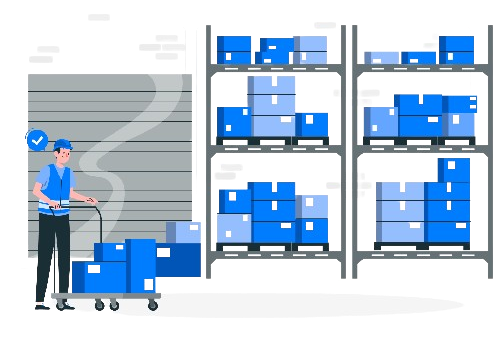
The Evolution Of Point-Of-Sale
In the fast-paced world of retail, the journey from the point of sale (POS) to product delivery has undergone a remarkable evolution. Traditional retail models have given way to innovative solutions that seamlessly integrate logistics into the POS process. In this blog, we’ll explore how this integration is revolutionizing the retail landscape and shaping the future of commerce.
The Rise of Integrated Solutions
Gone are the days when POS systems were solely focused on processing transactions. Today, leading POS solutions offer robust logistics integration, allowing retailers to manage inventory, track orders, and optimize deliveries from a single platform. This shift towards integrated solutions has empowered retailers to streamline operations, improve efficiency, and enhance the overall customer experience.
Enhanced Inventory Management
One of the key benefits of logistics integration is improved inventory management. With real-time inventory tracking capabilities, retailers can accurately monitor stock levels, track product movement, and automate replenishment processes. This not only reduces the risk of stockouts but also minimizes excess inventory, leading to cost savings and improved profitability.
Optimized Order Fulfillment
Logistics integration enables retailers to optimize order fulfillment processes, ensuring timely delivery of products to customers. By automating order processing, route optimization, and delivery scheduling, retailers can minimize delivery times, reduce shipping costs, and enhance customer satisfaction. This level of efficiency is essential in today’s competitive retail landscape, where speed and reliability are paramount.
Seamless Customer Experience
In the age of e-commerce, consumers expect a seamless and frictionless shopping experience. Logistics integration plays a crucial role in meeting these expectations by providing customers with real-time order tracking, flexible delivery options, and hassle-free returns. By offering a seamless end-to-end experience, retailers can build customer loyalty and drive repeat business.
Driving Innovation and Adaptability
The integration of logistics into the POS process is not just about optimizing existing operations—it’s also about driving innovation and adaptability. With advanced analytics and reporting capabilities, retailers can gain valuable insights into customer behavior, market trends, and inventory performance. This data-driven approach allows retailers to make informed decisions, identify opportunities for growth, and stay ahead of the competition.
Looking to the Future
As technology continues to evolve, the future of retail will be shaped by further advancements in POS and logistics integration. From AI-powered predictive analytics to drone delivery services, the possibilities are endless. By embracing these innovations and investing in cutting-edge solutions, retailers can future-proof their businesses and thrive in an ever-changing market landscape.
Conclusion
The evolution of point-of-sale has come a long way, from simple transaction processing to sophisticated logistics integration. Today, retailers have the opportunity to leverage these integrated solutions to streamline operations, enhance customer experiences, and drive growth. As we look to the future, the role of logistics in retail will only continue to expand, revolutionizing the way we shop and interact with brands.
